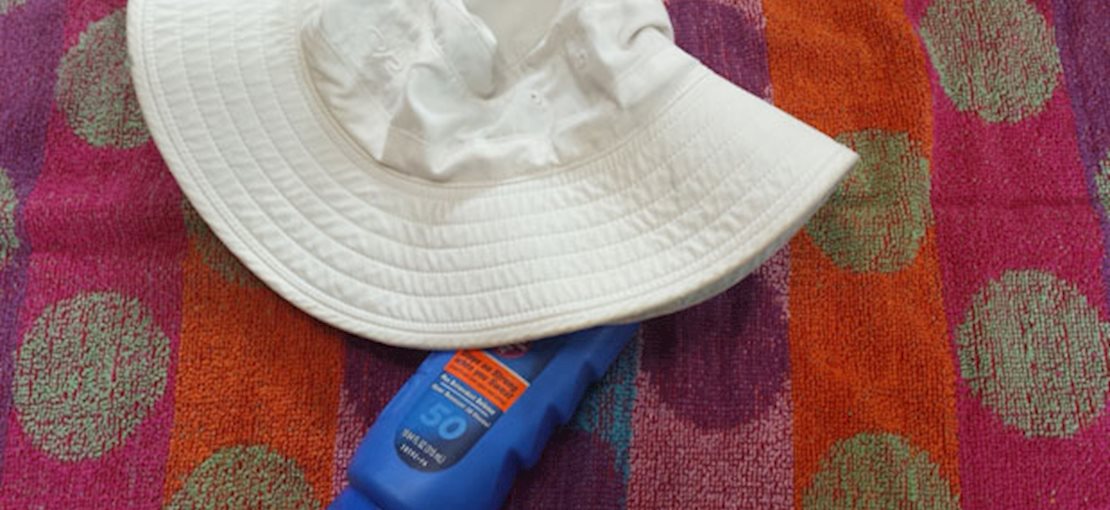Summer is here which means it's time to bust out the sunblock! This is especially true if you have young children: 1. because it's very unlikely that they'll do it themselves; and 2. because young children have delicate skin that is particularly susceptible to sunburns and sun damage. Thankfully, keeping your children safeguarded from the damaging rays of the sun is actually pretty easy. Here are some crucial basics for sun safety when it comes to your kids!
Sunblock or Sunscreen
Did you know that all it takes is one blistering sunburn in childhood to double your little one’s lifetime risk of melanoma? Sensitive, young skin is very vulnerable to damaging rays, so being extra sun-care savvy is important. The easiest, simplest, most foolproof way to protect your son or daughter from the damaging effects of the sun is with sunblock. It is tried and proven! But when it comes to sunblock, you may find that no two are the same.
When looking for sunblock, start by looking at the SPF (sun protection factor) number. The higher the number, the more protection the sunscreen offers against the sun's harmful UV rays. Used effectively, sunscreen can help prevent both melanoma and squamous cell carcinoma, so its value and importance cannot be overstated. When it comes to young children, use sunscreen with an SPF rating of 15 or higher (again, the higher the number the better) which also offers protection against UVA and UVB radiation. If you are unsure what type of protection is offered, look at the labels to find the product details.
Finally, for best results, reapply sunscreen at least once every two hours. If your son or daughter has gone in the water or is sweating, reapply as well. If you are using waterproof or water-resistant sunscreen, consider reapplying once every 45-90 minutes. When it comes to sun safety for kids, you can't be too safe!
Sunglasses
The same UV radiation that can damage the skin can also harm the eyes. Conditions including cataracts and macular degeneration have been linked to extended sun exposure. As you might expect, it's important that you take measures to help protect your children's eyes from the sun. A hat can certainly help but the most effective means to protect the eyes from the sun is sunglasses. Proper sunglasses will not only protect the eyes themselves, but the skin around the eyes as well, which is particularly susceptible to sun damage, as this skin is thin and delicate.
When shopping for sunglasses, be sure to buy glasses that properly fit and which offer UV protection. Buying sunglasses of a high quality is also important. Poorly made sunglasses can actually increase your child's risk of sun damage, as the darker lenses keep the pupils open wider than they otherwise would be; if the lenses offer inadequate UV protection, then your child's eyes are exposed to a greater degree of UVA and UVB rays. Companies like Ray-Ban (originally American, now Italian) offer a wide range of sunglasses with UV protection, and have a reputation for quality. Your child's eyes are certainly worth it!
Protective Clothing
If you know that you will be spending a large amount of time outdoors in direct sunlight, consider using both sunscreen and protective clothing to shield your son or daughter from the sun. Long-sleeve shirts, hats, and pants are more effective than the most powerful sunscreen at preventing sun damage or sunburn, as they pretty much block out all UVA and UVB rays. There are even companies that specialize in sun protective clothing, if you want to take extra precautions.
Though long sleeves and pants may seem punishing to wear during the summer, today's lightweight cottons and microfibers are more comfortable than you might think, and some even offer "active" cooling. Some manufacturers, like Omni-Freeze, make shirts that activate with your body's own sweat; as you sweat, the shirt cools. Other athletic clothing retailers, like Arctic Cool, use fabrics that are naturally cool to the touch, highly breathable, and incredibly absorbent. Of course, in the spring and fall months, overheating isn't likely to be an issue, but it's nice to know that during the summer, you can still wear long sleeves and pants!






Add A Comment
Thank you for your comment.
Sorry! There was a problem with your comment submission. Please try again.
Comment
Allowed HTML: <b>, <i>, <u>, <a>
Comments
Thank you for your comment.
Sorry! There was a problem with your comment submission. Please try again.
Thank you for your comment.
Sorry! There was a problem with your comment submission. Please try again.